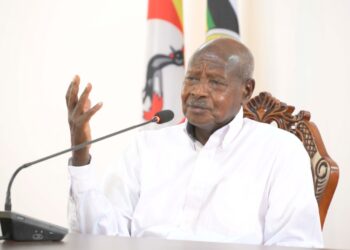Delegates at the ongoing African Primatological Society Conference in Entebbe have cautioned that if human activities towards the habitation of primates in the country is not regulated, tourism is bound to suffer a major setback.
Uganda is considered the Primate Capital of the World because it is home to many
different primate species, with Kibale National Park containing the highest density in all of Africa. As well as the chimpanzee and gorilla, the black-and-white colobus, red-tailed monkey, grey-cheeked mangabey, l’Hoest’s and blue monkeys, and olive baboons can be seen during game drives, launch trips or nature walks, along with smaller nocturnal species such as the bushbaby and potto. Mgahinga National Park also contains one of the last remaining habitats of the endangered golden monkey, according to Uganda Wildlife Authority.
Speaking during the official opening of the conference, Prime Minister Ruhakana Rugunda – who was represented by Minister of Tourism, Wildlife and Antiquities Ephraim Kamuntu – noted that about 60 per cent of all primate species are threatened with extinction due to deforestation, disease outbreaks, hunting for bushmeat, poaching among others. He, however, said that government through Uganda Wildlife Authority has trained over 500 rangers to avoid wildlife-human life conflicts.
“Ugandans must know that protecting primates deserves a concerted effort from multisectoral, international and within the government including UWA, Ministry of Health to sensitise people against entering primates’ designated areas. Primates are part of our culture that is why we must protect them,” Rugunda said.
His call was reechoed by the African Primatological Society president Dr Inza Kone who said if deforestation and other related human activities that affect the habitat of primates don’t reduce in the next 50 years many primates will be endangered while some species will become extinct.
“The biggest issue to primates is the destruction of the habitats especially agricultural dispensation, development of infrastructures, mining. However, people must know that we are not against development but it can be compatible with wildlife conservation because natural capital is the key to any development scheme,” said Inza.
According to Uganda Wildlife Authority Executive Director Sam Mwandha, out of the Shs100bn income Uganda wildlife generates from tourism annually, Shs60 billion comes from primates tourism. However, since their habitats are being cleared by humans for agricultural purposes, primates may decrease in number which will affect the flow of income.
Dr Gladys Kalema-Zikusoka Founder and Executive Director of Conservation through Public Health (CTPH) said this is the time for Africans to influence the global agenda of primate conservation. However, resources are still the problem.
“Conservation of primates must start from the people on the grass-root. Therefore, Africans need interactions with countries that have resources such as Japan,” she added.
The conference, the second of its kind will run from September 3 – September 6 under the theme “Primate Conservation in Africa: Challenges and Opportunities” with a focus on policy, practice and sustainability.
Do you have a story in your community or an opinion to share with us: Email us at editorial@watchdoguganda.com











